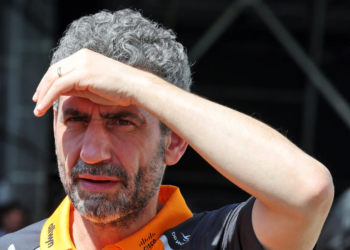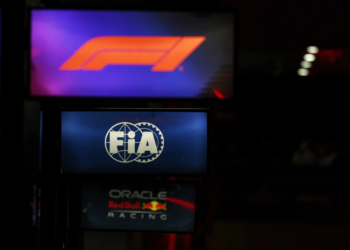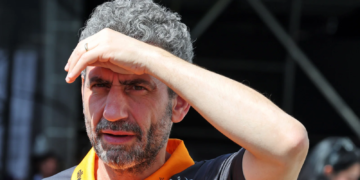Wondering about the factors that dictate racing success in Formula 1 is like asking yourself which came first, the chicken or the egg. This topic has always been up for debate, leading to all sorts of contrasting conclusions. There are those who argue that the drivers’ skills, coupled with the team’s strategy, are the most important predictors of success. However, others claim that it all comes down to technical matters and cite the car’s performance as the most decisive aspect.
This is theredore a very nuanced issue that encompasses many variables, making it extremely difficult to come up with a clear answer to this long-standing dilemma. It’s not as easy as pinpointing one element that decides the fate of every race in the Formula 1 World Championship. It takes a detailed analysis of all the factors that go into putting together an F1 race in order to understand how the action on the track unfolds.
So, we can either sit here all day and theorize, or we can look at the science provided by researchers in the field and gain a better understanding of the key elements that make the difference between winning and losing.
The science behind the tracks
It’s pretty clear that it takes multiple factors to make an Formula 1 grand prix happen, and thus there’s no single ingredient that dictates the outcome. Drivers can’t do much without their team’s support or a good-performing car, and a car can’t drive itself, so we’re looking at a combination of different components here. But the question remains: which of these components has the biggest influence on the results: the driver, the team, or the car? Or is there a specific grouping that leads to a winning recipe?

It appears that these questions have finally found an answer after a study published in the journal Applied Economics that covered eight intense seasons of Formula 1 racing from 2012-2019. It was once believed that the 80-20 rule was the most effective way to predict racing success. This meant that 80% of success chances are up to the car’s performance and the strategy developed by the team, while the driver’s talent and skills account for the remaining 20%. The results of the study disapproved this theory, showing that the interaction between the driver and the team weighs a lot more in the balance.
It’s true that at the end of a grand prix, the racing drivers are the ones who enjoy all the glory and the applause for their performance. But to have their contribution limited to as little as 20% feels rather dismissive of their efforts. Now, with these findings made public, it seems that drivers are finally getting the appreciation they deserve.
The study paints a completely different picture from the one that Formula 1 enthusiasts believed to be true until recently, showing that the car and team input have been greatly overrated in their influence. While they do play an important role in the success of a grand prix, their contribution is closer to 20%, a huge difference from the previous percentage that established them as dominant factors. What truly seems to have a huge impact on racing outcomes is the way drivers interact with their teams. This collaboration accounts for 30% to 40% of success chances. So, drivers are not just mere operators who are tasked with managing a highly-performant machine that does most of the job.
How about the rest of the percentage? It was found that this is reserved for random factors that can’t be controlled or predicted. Formula 1 racing is a fast-paced and intense sport, and a lot of things can go wrong on and off tracks that can potentially affect the result of each race. Although cars have become much safer over the years and drivers can walk unharmed from high-speed crashes, there’s always a chance of them getting injured in a terrible turn of events, with far-reaching consequences.
Unlike accidents on the highway, where people are the only ones responsible for their actions and can claim compensation for the damages if they weren’t at fault, as you can find out at https://www.personalinjuryclaimsuk.org.uk/, Formula 1 accidents have numerous ramifications for both drivers and teams. Since this is an organized sport with multiple parties involved, how F1 accidents are handled involves a very distinct set of rules and regulations meant to restore balance after an unfortunate event.
How does the budget play into it?
There’s a lot of money going into Formula 1, with a big part of it coming through sponsorship, so it’s natural to wonder how finances influence winning odds. The normal assumption would be that spending more money on team budgets and hiring skilled drivers would lead to better rankings, and the study’s findings also point in this direction.

However, the research also shows that money matters in Formula 1 are a bit more complicated than that. The difference is made not only by how much money is being spent but also by where the funds are being directed. So, although teams that spend more of their budget on drivers do increase their chances of finishing higher on the points table at the end of the year, it’s not a guaranteed recipe for success.
There has to be a balance between a team’s budget expenses and their drivers’ salaries to ensure a positive outcome. If the balance tilts in favour of the drivers, there might not be enough money to fund the rest of the team’s budget, and that can really affect the car’s performance. On the other hand, if the focus of the budget falls more towards improving car technology, that can limit the drivers’ salary and thus the possibility of hiring top-rated drivers. The logical conclusion is that teams with bigger overall budgets that spread their money evenly between team needs and drivers have the highest chances of securing a better position in both the Drivers’ and Constructors’’ Championships.
As you can see, forecasting Formula 1 success can be a tricky business, even when you have all the stats and data in front of you. Studies and research can provide clarifications to a certain extent, but there’s always going to be that element of surprise in F1 that makes this sport highly unpredictable and incredibly exciting as a result.








